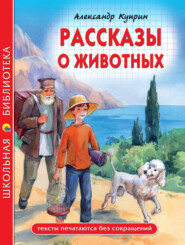По всем вопросам обращайтесь на: info@litportal.ru
(©) 2003-2024.
✖
The Duel
Настройки чтения
Размер шрифта
Высота строк
Поля
“Ah, ah,” and the old woman raised her eyebrows as a sign that she understood. “Well, then, you’re, of course, a son of Sergei Petrovich Shishkin?”
“No, dear mother,” roared the Colonel, “you are wrong. His name is Romashov, not Shishkin.”
“Yes, didn’t I say so? I never knew Sergei Petrovich except by hearsay; but I often met Peter Petrovich. He was a charming young man. We were near neighbours, and I congratulate you, my young friend, on your relationship.”
“Well, as you will have it, you old deaf-as-a-post,” exclaimed the Colonel, interrupting her with good-humoured cynicism.” But now, let’s sit down; please take a seat, Sub-lieutenant. Lieutenant Federovski,” he shrieked towards the door, “stop your work and come and have a schnapps.” The Adjutant, who, according to the custom in many regiments, dined every day with his chief, hurriedly entered the dining-room. He clicked his spurs softly and discreetly, walked straight up to the little majolica table with the sakuska,[10 - Corresponds to the Swedish smörgasbord, and consists of a number of cold dishes and delicacies.] calmly helped himself to a schnapps, and ate with extreme calmness and enjoyment. Romashov noticed all that with an absurd, envious feeling of admiration.
“You’ll take one, won’t you?” said Shulgovich to Romashov. “You’re no teetotaller, you know.”
“No, thank you very much,” replied Romashov hoarsely; and, with a slight cough, “I do not usually – ”
“Bravo, my young friend. Stick to that in future.”
They sat down to table. The dinner was good and abundant. Any one could observe that, in this childless family, both host and hostess had an innocent little weakness for good living. Dinner consisted of chicken soup with vegetables, roast bream with kascha,[11 - A national dish in Russia, consisting of a sort of buckwheat porridge baked in the oven in fire-proof earthen vessels, which are put on the table.] a splendid fat duck and asparagus. On the table stood three remarkable decanters containing red wine, white wine, and madeira, resplendent with embossed silver stoppers bearing elegant foreign marks. The Colonel, whose violent explosion of wrath but a short time previously had evidently given him an excellent appetite, ate with an elegance and taste that struck the spectator with pleasure and surprise. He joked all the time with a certain rough humour. When the asparagus was put on the table, he crammed a corner of his dazzlingly white serviette well down under his chin, and exclaimed in a lively way —
“If I were the Tsar, I would eat asparagus every day of my life.”
Only once, at the fish course, he fell into his usual domineering tone, and shouted almost harshly to Romashov —
“Sub-lieutenant, be good enough to put your knife down. Fish and cutlets are eaten only with a fork. An officer must know how to eat properly; he may, at any time, you know, be invited to the palace. Don’t forget that.”
Romashov was uncomfortable and constrained the whole time. He did not know what to do with his hands, which, for the most part, he kept under the table plaiting the fringe of the tablecloth. He had long got out of the habit of observing what was regarded as “good form” in an elegant and wealthy house. And, during the whole time he was at table, one sole thought tortured him: “How disagreeable this is, and what weakness and cowardice on my part not to have the courage to refuse this humiliating invitation to dinner. Now I shall not stand this any longer. I’ll get up and bow to the company, and go my way. They may think what they please about it. They can hardly eat me up for that – nor rob me of my soul, my thoughts, my consciousness. Shall I go?” And again he was obliged to acknowledge to himself, with a heart overflowing with pain and indignation, that he lacked the moral courage necessary to assert his individuality and self-respect.
Twilight was falling when at last coffee was served. The red, slanting beams of the setting sun filtered in through the window blinds, and sportively cast little copper-coloured spots or rays on the dark furniture, on the white tablecloth, and the clothes and countenances of those present. Conversation gradually languished. All sat silent, as though hypnotized by the mystic mood of the dying day.
“When I was an ensign,” said Shulgovich, breaking the silence, “we had for the chief of our brigade a General named Fofanov. He was just one of those gentle and simple old fogies who had risen from the ranks during a time of war, and, as I believe, belonged at the start to what we call Kantonists.[12 - In the time of Nicholas, sons of soldiers quartered or garrisoned in certain districts. They were liable to be called on to serve.] I remember how at reviews he always went straight up to the big drum – he was insanely enamoured of that instrument – and said to the drummer, ‘Come, come, my friend, play me something really melancholy.’ This same General had also the habit of going to bed directly the clock struck eleven. When the clock was just on the stroke of the hour, he invariably said to his guests, ‘Well, well, gentlemen, eat, drink, and enjoy yourselves, but I’m going to throw myself into the arms of Neptune.’ Somebody once remarked, ‘Your Excellency, you mean the arms of Morpheus?’ ‘Oh, that’s the same thing. They both belong to the same mineralogy.’ Well, that’s just what I am going to do, gentlemen.”
Shulgovich got up and placed his serviette on the arm of his chair. “I, too, am going to throw myself into the arms of Neptune. I release you, gentlemen.”
Both officers got up and stretched themselves. “A bitter, ironical smile played on his thin lips,” thought Romashov about himself – only thought, however, for at that moment his countenance was pale, wretched, and by no means prepossessing to look at.
Once more Romashov was on his way home, and once more he felt himself lonely, abandoned, and helpless in this gloomy and hostile place. Once more the sun flamed in the west, amidst heavy, dark blue thunder-clouds, and once more before Romashov’s eyes, in the distance, behind houses and fields, at the verge of the horizon, there loomed a fantastic fairy city beckoning to him with promises of marvellous beauty and happiness.
The darkness fell suddenly between the rows of houses. A few little Jewish children ran, squealing, along the path. Here and there in doorways, in the embrasures of windows, and in the dusk of gardens there were sounds of women’s laughter, provocative and unintermittent, and with a quiver of warm animalistic gladness which is heard only when spring is near. With the deep yet calm melancholy that now lay heavy on Romashov’s heart there were mingled strange, dim memories of a bliss miraged but never enjoyed in youth’s still lovelier spring, and there arose in his heart a delicious presentiment of a strong, invincible love that at last gained its object.
When Romashov reached his abode he found Hainán in his dark and dirty cupboard in front of Pushkin’s bust. The great bard was smeared all over with grease, and before him burning candles cast bright blurs on the statue’s nose, its thick lips and muscular neck. Hainán sat, in the Turkish style, cross-legged on the three boards that constituted his bed, rocked his body to and fro, and mumbled out in a sing-song tone something weird, melancholy, and monotonous.
“Hainán,” shouted Romashov.
The servant started, jumped up, and stood at attention. Fear and embarrassment were displayed on his countenance.
“Allah?” asked Romashov in the most friendly way.
The Circassian’s shaven boyish mouth expanded in a broad grin which showed his beautiful white teeth in the candle-light.
“Allah, your Honour.”
“It is all the same, Hainán. Allah is in you. Allah is in me. There is one Allah for us all.”
“My excellent Hainán,” thought Romashov to himself as he went into his room. “And I dare not shake hands with him. Dare not! Damn it all! from to-day I will dress and undress myself. It’s a disgrace that some one else should do it for me.”
That evening he did not go to the mess-room, but stayed at home and brought out of a drawer a thick, ruled book, nearly entirely filled with elegant, irregular handwriting. He wrote far into the night. It was the third in order of Romashov’s novels, and its title ran: A Fatal Beginning.
But our lieutenant blushed furiously at his literary efforts, and he would not have been induced for anything in the world to acknowledge his authorship.
VIII
BARRACKS had just begun to be built for the garrison troops on what was called the “Cattle Square,” outside the town, on the other side of the railway. Meanwhile the companies were quartered here and there in the town. The officers’ mess-room was situated in a rather small house. The drawing-room and ballroom had their windows over the street. The other rooms, the windows of which overlooked a dark, dirty backyard, were set apart for kitchen, dining-room, billiard-room, guest-chamber, and ladies’-room. A long narrow corridor with doors to all the rooms in the house ran the whole length of the building. In the rooms that were seldom used, and not often cleaned or aired, a musty, sour smell greeted the visitor as he entered.
Romashov reached the mess at 9 p.m. Five or six unmarried officers had already assembled for the appointed soirée, but the ladies had not yet arrived. For some time past there had been a keen rivalry amongst the latter to display their acquaintance with the demands of fashion, according to which it was incumbent on a lady with pretensions to elegance scrupulously to avoid being among the first to reach the ballroom. The musicians were already in their places in a sort of gallery that was connected with the room by means of a large window composed of many panes of glass. Three-branched candelabra on the pillars between the windows shed their radiance, and lamps were suspended from the roof. The bright illumination on the scanty furniture, consisting only of Viennese chairs, the bare walls, and the common white muslin window-curtains, gave the somewhat spacious room a very empty and deserted air.
In the billiard-room the two Adjutants of the battalion, Biek-Agamalov and Olisár – the only count in the regiment – were engaged in a game of “Carolina.” The stakes were only ale. Olisár – tall, gaunt, sleek, and pomaded – an “old, young man” with wrinkled face and bald crown, scattered freely billiard-room jests and slang. Biek-Agamalov lost both his game and his temper in consequence. In the seat by the window sat Staff-Captain Lieschtschenko – a melancholy individual of forty-five, an altogether miserable figure, the mere sight of which could bore people to death – watching the game. His whole appearance gave the impression of hopeless melancholy. Everything about him was limp: his long, fleshy, wrinkled red nose; his dim, dark-brown thread-like moustache that reached down below his chin. His eyebrows, which grew a good way down to the bridge of his nose, made his eyes look as if he were just about to weep, and his thin, lean body with his sunken chest and sloping shoulders looked like a clothes-horse in its worn and shiny uniform. Lieschtschenko neither smoked, drank, nor played; but he found a strange pleasure in looking at the cards from behind the players’ backs, and in following the movements of the balls in the billiard-room. He likewise delighted in listening, huddled up in a dining-room window, to the row and vulgarities of the wildest drinking-bouts. He could thus sit, for hours at a time, motionless as a stone statue, and without uttering a single word. All the officers were so accustomed to this that they almost regarded the silent Lieschtschenko as one of the inevitable fixtures of a normal gambling or drinking bout.
After saluting the three officers, Romashov sat down by Lieschtschenko, who courteously made room for him, as with a deep sigh he fixed his sorrowful and friendly, dog-like eyes on him.
“How is Maria Viktorovna?” asked Romashov in the careless and intentionally loud voice which is generally employed in conversation with deaf or rather stupid people, and which all the regiment (including the ensigns) used when they happened to address Lieschtschenko.
“Quite well, thanks,” replied Lieschtschenko with a still deeper sigh. “You understand – her nerves; but, you know, at this time of year – ”
“But why did she not come with you? But perhaps Maria Viktorovna is not coming to the soirée to-night?”
“What do you mean? of course she’s coming; but you see, my dear fellow, there was no room for me in the cab. She and Raisa Peterson took a trap between them, and as you’ll understand, my dear fellow, they said to me, ‘Don’t come here with your dirty, rough boots, they simply ruin our clothes.’”
“Croisez in the middle – a nice ‘kiss.’ Pick up the ball, Biek,” cried Olisár.
“I am not a lackey. Do you think I’ll pick up your balls?” replied Biek-Agamalov in a furious tone.
Lieschtschenko caught in his mouth the tips of his long moustaches, and thereupon began sucking and chewing them with an extremely thoughtful and troubled air.
“Yuri Alexievich, my dear fellow, I have a favour to ask you,” he blurted out at last in a shy and deprecating tone. “You lead the dance to-night, eh?”
“Yes, damn it all! They have so arranged it among themselves. I did try to get off it, kow-towed to the Adjutant – ah, pretty nearly reported myself ill. ‘In that case,’ said he, ‘you must be good enough to hand in a medical certificate.’”
“This is what I want you to do for me,” Lieschtschenko went on in the same humble voice. “For God’s sake see that she does not have to sit out many dances.”
“Maria Viktorovna?”
“Yes, please – ”
“Double with the yellow in the corner,” said Biek-Agamalov, indicating the stroke he intended to make. Being short, he often found billiards very troublesome. To reach the ball now he was obliged to lie lengthways on the table. He became quite red in the face through the effort, and two veins in his forehead swelled to such an extent that they converged at the top of his nose like the letter V.[13 - An old Slavonic character (l’schiza), only occurring in the Russian Bible and Ritual.]
“What a conjurer!” said Olisár in a jeering, ironical tone. “I could not do that.”
Agamalov’s cue touched the ball with a dry, scraping sound. The ball did not move from its place.
“Miss!” cried Olisár jubilantly, as he danced a cancan round the billiard table. “Do you snore when you sleep, my pretty creature?”
Agamalov banged the thick end of his cue on the floor.
“No, dear mother,” roared the Colonel, “you are wrong. His name is Romashov, not Shishkin.”
“Yes, didn’t I say so? I never knew Sergei Petrovich except by hearsay; but I often met Peter Petrovich. He was a charming young man. We were near neighbours, and I congratulate you, my young friend, on your relationship.”
“Well, as you will have it, you old deaf-as-a-post,” exclaimed the Colonel, interrupting her with good-humoured cynicism.” But now, let’s sit down; please take a seat, Sub-lieutenant. Lieutenant Federovski,” he shrieked towards the door, “stop your work and come and have a schnapps.” The Adjutant, who, according to the custom in many regiments, dined every day with his chief, hurriedly entered the dining-room. He clicked his spurs softly and discreetly, walked straight up to the little majolica table with the sakuska,[10 - Corresponds to the Swedish smörgasbord, and consists of a number of cold dishes and delicacies.] calmly helped himself to a schnapps, and ate with extreme calmness and enjoyment. Romashov noticed all that with an absurd, envious feeling of admiration.
“You’ll take one, won’t you?” said Shulgovich to Romashov. “You’re no teetotaller, you know.”
“No, thank you very much,” replied Romashov hoarsely; and, with a slight cough, “I do not usually – ”
“Bravo, my young friend. Stick to that in future.”
They sat down to table. The dinner was good and abundant. Any one could observe that, in this childless family, both host and hostess had an innocent little weakness for good living. Dinner consisted of chicken soup with vegetables, roast bream with kascha,[11 - A national dish in Russia, consisting of a sort of buckwheat porridge baked in the oven in fire-proof earthen vessels, which are put on the table.] a splendid fat duck and asparagus. On the table stood three remarkable decanters containing red wine, white wine, and madeira, resplendent with embossed silver stoppers bearing elegant foreign marks. The Colonel, whose violent explosion of wrath but a short time previously had evidently given him an excellent appetite, ate with an elegance and taste that struck the spectator with pleasure and surprise. He joked all the time with a certain rough humour. When the asparagus was put on the table, he crammed a corner of his dazzlingly white serviette well down under his chin, and exclaimed in a lively way —
“If I were the Tsar, I would eat asparagus every day of my life.”
Only once, at the fish course, he fell into his usual domineering tone, and shouted almost harshly to Romashov —
“Sub-lieutenant, be good enough to put your knife down. Fish and cutlets are eaten only with a fork. An officer must know how to eat properly; he may, at any time, you know, be invited to the palace. Don’t forget that.”
Romashov was uncomfortable and constrained the whole time. He did not know what to do with his hands, which, for the most part, he kept under the table plaiting the fringe of the tablecloth. He had long got out of the habit of observing what was regarded as “good form” in an elegant and wealthy house. And, during the whole time he was at table, one sole thought tortured him: “How disagreeable this is, and what weakness and cowardice on my part not to have the courage to refuse this humiliating invitation to dinner. Now I shall not stand this any longer. I’ll get up and bow to the company, and go my way. They may think what they please about it. They can hardly eat me up for that – nor rob me of my soul, my thoughts, my consciousness. Shall I go?” And again he was obliged to acknowledge to himself, with a heart overflowing with pain and indignation, that he lacked the moral courage necessary to assert his individuality and self-respect.
Twilight was falling when at last coffee was served. The red, slanting beams of the setting sun filtered in through the window blinds, and sportively cast little copper-coloured spots or rays on the dark furniture, on the white tablecloth, and the clothes and countenances of those present. Conversation gradually languished. All sat silent, as though hypnotized by the mystic mood of the dying day.
“When I was an ensign,” said Shulgovich, breaking the silence, “we had for the chief of our brigade a General named Fofanov. He was just one of those gentle and simple old fogies who had risen from the ranks during a time of war, and, as I believe, belonged at the start to what we call Kantonists.[12 - In the time of Nicholas, sons of soldiers quartered or garrisoned in certain districts. They were liable to be called on to serve.] I remember how at reviews he always went straight up to the big drum – he was insanely enamoured of that instrument – and said to the drummer, ‘Come, come, my friend, play me something really melancholy.’ This same General had also the habit of going to bed directly the clock struck eleven. When the clock was just on the stroke of the hour, he invariably said to his guests, ‘Well, well, gentlemen, eat, drink, and enjoy yourselves, but I’m going to throw myself into the arms of Neptune.’ Somebody once remarked, ‘Your Excellency, you mean the arms of Morpheus?’ ‘Oh, that’s the same thing. They both belong to the same mineralogy.’ Well, that’s just what I am going to do, gentlemen.”
Shulgovich got up and placed his serviette on the arm of his chair. “I, too, am going to throw myself into the arms of Neptune. I release you, gentlemen.”
Both officers got up and stretched themselves. “A bitter, ironical smile played on his thin lips,” thought Romashov about himself – only thought, however, for at that moment his countenance was pale, wretched, and by no means prepossessing to look at.
Once more Romashov was on his way home, and once more he felt himself lonely, abandoned, and helpless in this gloomy and hostile place. Once more the sun flamed in the west, amidst heavy, dark blue thunder-clouds, and once more before Romashov’s eyes, in the distance, behind houses and fields, at the verge of the horizon, there loomed a fantastic fairy city beckoning to him with promises of marvellous beauty and happiness.
The darkness fell suddenly between the rows of houses. A few little Jewish children ran, squealing, along the path. Here and there in doorways, in the embrasures of windows, and in the dusk of gardens there were sounds of women’s laughter, provocative and unintermittent, and with a quiver of warm animalistic gladness which is heard only when spring is near. With the deep yet calm melancholy that now lay heavy on Romashov’s heart there were mingled strange, dim memories of a bliss miraged but never enjoyed in youth’s still lovelier spring, and there arose in his heart a delicious presentiment of a strong, invincible love that at last gained its object.
When Romashov reached his abode he found Hainán in his dark and dirty cupboard in front of Pushkin’s bust. The great bard was smeared all over with grease, and before him burning candles cast bright blurs on the statue’s nose, its thick lips and muscular neck. Hainán sat, in the Turkish style, cross-legged on the three boards that constituted his bed, rocked his body to and fro, and mumbled out in a sing-song tone something weird, melancholy, and monotonous.
“Hainán,” shouted Romashov.
The servant started, jumped up, and stood at attention. Fear and embarrassment were displayed on his countenance.
“Allah?” asked Romashov in the most friendly way.
The Circassian’s shaven boyish mouth expanded in a broad grin which showed his beautiful white teeth in the candle-light.
“Allah, your Honour.”
“It is all the same, Hainán. Allah is in you. Allah is in me. There is one Allah for us all.”
“My excellent Hainán,” thought Romashov to himself as he went into his room. “And I dare not shake hands with him. Dare not! Damn it all! from to-day I will dress and undress myself. It’s a disgrace that some one else should do it for me.”
That evening he did not go to the mess-room, but stayed at home and brought out of a drawer a thick, ruled book, nearly entirely filled with elegant, irregular handwriting. He wrote far into the night. It was the third in order of Romashov’s novels, and its title ran: A Fatal Beginning.
But our lieutenant blushed furiously at his literary efforts, and he would not have been induced for anything in the world to acknowledge his authorship.
VIII
BARRACKS had just begun to be built for the garrison troops on what was called the “Cattle Square,” outside the town, on the other side of the railway. Meanwhile the companies were quartered here and there in the town. The officers’ mess-room was situated in a rather small house. The drawing-room and ballroom had their windows over the street. The other rooms, the windows of which overlooked a dark, dirty backyard, were set apart for kitchen, dining-room, billiard-room, guest-chamber, and ladies’-room. A long narrow corridor with doors to all the rooms in the house ran the whole length of the building. In the rooms that were seldom used, and not often cleaned or aired, a musty, sour smell greeted the visitor as he entered.
Romashov reached the mess at 9 p.m. Five or six unmarried officers had already assembled for the appointed soirée, but the ladies had not yet arrived. For some time past there had been a keen rivalry amongst the latter to display their acquaintance with the demands of fashion, according to which it was incumbent on a lady with pretensions to elegance scrupulously to avoid being among the first to reach the ballroom. The musicians were already in their places in a sort of gallery that was connected with the room by means of a large window composed of many panes of glass. Three-branched candelabra on the pillars between the windows shed their radiance, and lamps were suspended from the roof. The bright illumination on the scanty furniture, consisting only of Viennese chairs, the bare walls, and the common white muslin window-curtains, gave the somewhat spacious room a very empty and deserted air.
In the billiard-room the two Adjutants of the battalion, Biek-Agamalov and Olisár – the only count in the regiment – were engaged in a game of “Carolina.” The stakes were only ale. Olisár – tall, gaunt, sleek, and pomaded – an “old, young man” with wrinkled face and bald crown, scattered freely billiard-room jests and slang. Biek-Agamalov lost both his game and his temper in consequence. In the seat by the window sat Staff-Captain Lieschtschenko – a melancholy individual of forty-five, an altogether miserable figure, the mere sight of which could bore people to death – watching the game. His whole appearance gave the impression of hopeless melancholy. Everything about him was limp: his long, fleshy, wrinkled red nose; his dim, dark-brown thread-like moustache that reached down below his chin. His eyebrows, which grew a good way down to the bridge of his nose, made his eyes look as if he were just about to weep, and his thin, lean body with his sunken chest and sloping shoulders looked like a clothes-horse in its worn and shiny uniform. Lieschtschenko neither smoked, drank, nor played; but he found a strange pleasure in looking at the cards from behind the players’ backs, and in following the movements of the balls in the billiard-room. He likewise delighted in listening, huddled up in a dining-room window, to the row and vulgarities of the wildest drinking-bouts. He could thus sit, for hours at a time, motionless as a stone statue, and without uttering a single word. All the officers were so accustomed to this that they almost regarded the silent Lieschtschenko as one of the inevitable fixtures of a normal gambling or drinking bout.
After saluting the three officers, Romashov sat down by Lieschtschenko, who courteously made room for him, as with a deep sigh he fixed his sorrowful and friendly, dog-like eyes on him.
“How is Maria Viktorovna?” asked Romashov in the careless and intentionally loud voice which is generally employed in conversation with deaf or rather stupid people, and which all the regiment (including the ensigns) used when they happened to address Lieschtschenko.
“Quite well, thanks,” replied Lieschtschenko with a still deeper sigh. “You understand – her nerves; but, you know, at this time of year – ”
“But why did she not come with you? But perhaps Maria Viktorovna is not coming to the soirée to-night?”
“What do you mean? of course she’s coming; but you see, my dear fellow, there was no room for me in the cab. She and Raisa Peterson took a trap between them, and as you’ll understand, my dear fellow, they said to me, ‘Don’t come here with your dirty, rough boots, they simply ruin our clothes.’”
“Croisez in the middle – a nice ‘kiss.’ Pick up the ball, Biek,” cried Olisár.
“I am not a lackey. Do you think I’ll pick up your balls?” replied Biek-Agamalov in a furious tone.
Lieschtschenko caught in his mouth the tips of his long moustaches, and thereupon began sucking and chewing them with an extremely thoughtful and troubled air.
“Yuri Alexievich, my dear fellow, I have a favour to ask you,” he blurted out at last in a shy and deprecating tone. “You lead the dance to-night, eh?”
“Yes, damn it all! They have so arranged it among themselves. I did try to get off it, kow-towed to the Adjutant – ah, pretty nearly reported myself ill. ‘In that case,’ said he, ‘you must be good enough to hand in a medical certificate.’”
“This is what I want you to do for me,” Lieschtschenko went on in the same humble voice. “For God’s sake see that she does not have to sit out many dances.”
“Maria Viktorovna?”
“Yes, please – ”
“Double with the yellow in the corner,” said Biek-Agamalov, indicating the stroke he intended to make. Being short, he often found billiards very troublesome. To reach the ball now he was obliged to lie lengthways on the table. He became quite red in the face through the effort, and two veins in his forehead swelled to such an extent that they converged at the top of his nose like the letter V.[13 - An old Slavonic character (l’schiza), only occurring in the Russian Bible and Ritual.]
“What a conjurer!” said Olisár in a jeering, ironical tone. “I could not do that.”
Agamalov’s cue touched the ball with a dry, scraping sound. The ball did not move from its place.
“Miss!” cried Olisár jubilantly, as he danced a cancan round the billiard table. “Do you snore when you sleep, my pretty creature?”
Agamalov banged the thick end of his cue on the floor.

















